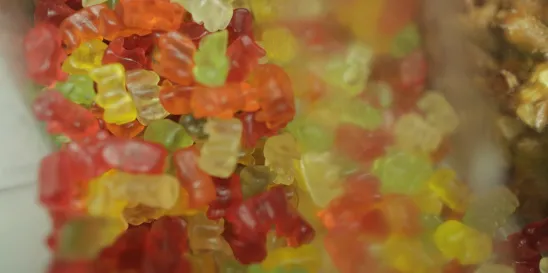Gummies, brownies, sodas, cookies . . . consumer appetite for food and dietary supplement products containing cannabidiol (“CBD”) has grown over the last few years as states have moved to legalize cannabis for medical or limited recreational use. With the passage of the 2018 Farm Bill on December 20, 2018, which legalized the cultivation of hemp for certain purposes, the “edibles” industry appeared poised for further expansion.
However, recent developments at both the federal and state level may be putting the “edibles” industry on a diet. In the past week, bans on the sale of foods and beverages with added CBD have been reported in three jurisdictions—Maine, Ohio, and New York City. Maine Department of Health and Human Services officials are reported to have ordered the removal of any edible product containing CBD from store shelves, including foods, tinctures, and capsules. Further, the Ohio Department of Agriculture is reported to have put an “embargo” on products containing CBD. News sources report that government officials from these states began enforcement of this policy by seizing products from local businesses. Finally, the New York City Department of Health and Mental Hygiene appears to have instructed New York City businesses to stop selling any foods or drinks with CBD as a food additive.
These state and municipal actions are the most recent governmental bite out of the edibles industry. Concurrent with the passage of the Farm Bill, FDA Commissioner Scott Gottlieb released a statement cautioning that the new law did not alter the agency’s position on CBD added to food or contained in dietary supplements. Rather, according to the statement, it is unlawful under the Federal Food, Drug, and Cosmetic (“FD&C”) Act “to introduce food containing added CBD . . . into interstate commerce, or to market CBD . . . products as, or in, dietary supplements, regardless of whether the substances are hemp-derived. This is because both CBD and THC are active ingredients in FDA-approved drugs and were the subject of substantial clinical investigations before they were marketed as food or dietary supplements.” A newly-added FDA webpage, “FDA and Marijuana: Questions and Answers,” similarly asserts this view.
FDA’s position is rooted in two provisions of the FD&C Act, namely 21 U.S.C. §§ 331(ll) and 321(ff)(3)(B). These provisions prohibit the sale of any food or dietary supplement, respectively, which contains an ingredient that was the subject of clinical investigations or approved as a drug by FDA before the ingredient was marketed in the food or dietary supplement. FDA maintains that CBD was approved as a drug ingredient by the agency (i.e., the anti-epilepsy drug Epidiolex®) before it was marketed in food, and therefore “it is a prohibited act to introduce or deliver for introduction into interstate commerce any food . . . to which . . . CBD has been added.”
It remains to be seen whether other state and local governments will follow the lead of Maine, Ohio, and New York City by banning the sale of edibles, either for public health concerns or to conform with FDA policy. Given consumer demand for and industry investment in CBD products, other states and localities may face opposition to such actions.
These same factors also may encourage FDA to reexamine its current policy; indeed, the Commissioner’s statement acknowledged that FDA could, through rulemaking, allow the use of CBD in traditional food and dietary supplement products, and announced the agency’s intent to “hold a public meeting in the near future for stakeholders to share their experiences and challenges with these products, including information and views related to the safety of such products.” Stakeholders with an interest in consumer-based CBD products—as well as in developing other hemp-derived cannabinoid compounds for the consumer market—may wish to consider an FDA engagement strategy as part of their business development plans.




 />i
/>i

